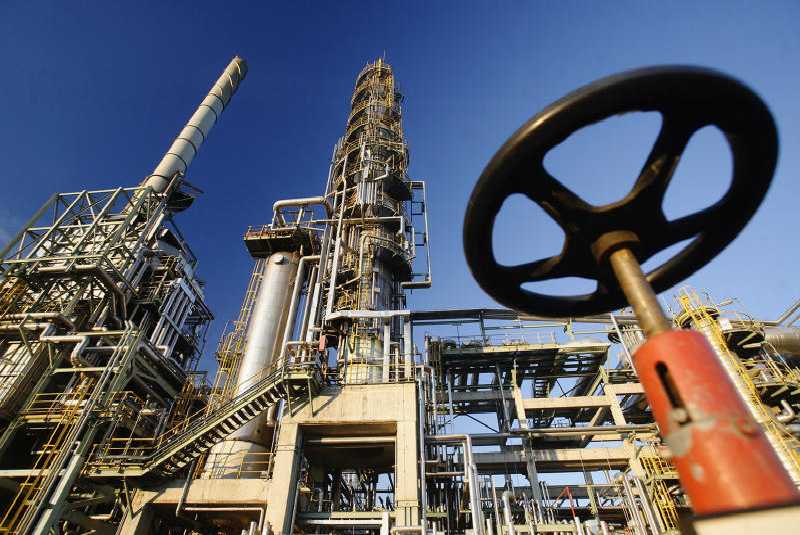
The economic law governing product prices tells us that when the supply decreases, then we should expect the price of that product to increase.
This is what the world should expect when the US enforces sanctions against Iran. However, the concern is how such sanctions against the Islamic State will affect her oil exports.
A report in May this year indicated that Iran’s oil exports are around 2.7 million barrels per day (bpd).
Historical data shows that at one point, Iran produced 5.1 per cent of the world’s total crude oil. In 2004, Iran was exporting 3.9 million barrels per day.
This background is important in understanding how sanctions on Iran will affect it and the rest of the world.
However, this change in oil supply might affect us as well because supply and prices are driven by various factors.
In oil trade, just like other markets, the perception of market players’ matters.
For whatever reason, if the supply of oil will not be affected by sanctions, then oil prices will not change due to sanctions. The foreign press has captured this lack of consensus as to how oil supply will respond to sanctions against Iran.
Iranian oil
The major players in this market are banks that finance huge oil transactions.
Barclays Bank, UK is reported in its review that Iran’s oil production may not change due to sanctions.
However, UBS Switzerland forecasts that the sanctions could reduce oil exports by 200,000-500,000 bpd over the next six months.
The Deutsche Bank, Germany is of the view that in the short-run, there will be no drop in both Iranian oil production and exports, but if sanctions persist, there will be a drop in production and export.
A group of market players agree that the price of oil will go up, but add that the effect of such sanctions has already been factored into prices, so any immediate impact will be insignificant.
The oil prices during the sanction depend on what the Organisation of the Petroleum Exporting Countries (OPEC) does.
If OPEC decides to pump extra barrels of oil, then the crude oil prices will remain flat; but the oil exporting countries’ lobby signaled that it would not rush to release more product to the market.
However, OPEC’s reaction may be due to a lack of capacity to meet the shortage caused by sanctions.
The shortage is estimated to be 1.4 million barrels a day.
The highest output by Saudi Arabia, a member of OPEC was 10.6 million barrels a day, but currently, her output is 10.4 million barrels a day - that is Saudi Arabia can only increase its output by about 200,000 barrels a day.
There will be a whopping 1.2 million barrels shortage.
The oil trading giants Mercuria Energy Group Ltd and Trafigura Group think that sanctions against Iran could send oil back above Sh10,000 ($100) a barrel.
Opposition to sanctions
The largest consumers of Iranian oil are China (0.65 million barrels per day), India (0.501 million barrels per day) and Korea 313,000 barrels per day). These countries are likely to apply for a waiver or in the case of China outrightly oppose the sanctions and break them.
History confirms that the last time the US sanctioned Iran, some countries were given exemptions, but the sanctions were opened with a review every 180 days. The countries exempted were China, India and South Korea.
At that time, some countries tried to beat sanctions by routing payments through a domestic financial institution or trading in currencies, but this is impossible now.
What would you have done if you were the Kenya Airways chief executive or a large importer of oil or oil products?
You must put in place systems that protect the earnings from your company against fluctuations in oil prices. In risk management, oil hedging is used to ease a company’s exposure to fluctuating oil prices.
In risk management, oil hedging is a contractual tool that enables a company to fix or cap an oil price at a certain level or over a period of time.
The oil price surge might affect or not affect you because the supplier can decide to pass or not pass the increase to you.
-The writer teaches at the University of Nairobi
 The Standard Group Plc is a multi-media organization with investments in media
platforms spanning newspaper print operations, television, radio broadcasting,
digital and online services. The Standard Group is recognized as a leading
multi-media house in Kenya with a key influence in matters of national and
international interest.
The Standard Group Plc is a multi-media organization with investments in media
platforms spanning newspaper print operations, television, radio broadcasting,
digital and online services. The Standard Group is recognized as a leading
multi-media house in Kenya with a key influence in matters of national and
international interest.
 The Standard Group Plc is a multi-media organization with investments in media
platforms spanning newspaper print operations, television, radio broadcasting,
digital and online services. The Standard Group is recognized as a leading
multi-media house in Kenya with a key influence in matters of national and
international interest.
The Standard Group Plc is a multi-media organization with investments in media
platforms spanning newspaper print operations, television, radio broadcasting,
digital and online services. The Standard Group is recognized as a leading
multi-media house in Kenya with a key influence in matters of national and
international interest.










